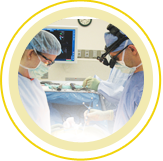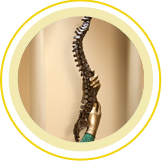Many things in our body change as we get older. Our hair turns gray, many of us lose our close up vision, and the discs in our spine begin to degenerate. Our spinal discs act as cushions or shock absorbers between the bones in our spine. This is known as DDD. We can dye our hair and get reading glasses, but can degenerative disc disease be reversed?
Definition of DDD
The discs in our spine allow us to move in many directions and remain flexible. The degenerative process is most noted in the lower part of our back, called the lumbar region, and the neck area, or cervical region, since these are the areas under the most stress. This constant wear and tear causes our discs to lose elasticity, and we lose the ability to move around as we have in the past without pain. Degenerative discs can also occur due to injury.

Our discs are 80% water which helps the collagen within the disc to maintain flexibility. As DDD progresses the ligaments surrounding the discs become brittle. In addition, the gel-like center of our discs begin to shrink and thin. Some of us are left with degenerative arthritis.
Some Causes Of Pain With Degenerative Discs
By age 60 most of us have some degree of DDD, but not all have pain. If you do have pain, it may be from the following conditions:
- When discs dry out they are not able to provide the padding between our vertebrae, and other problems in our spin can cause pain.
- A crack in our discs can be due to a minor injury or everyday movements. This can lead to tiny cracks in the outer wall of a disc, and cracks near nerves will cause pain.
- A crack in a disc can cause them to bulge (herniated disc) or slip out of place (slipped disc).
Reversal Of Degenerative Disc Disease
Unfortunately you cannot reverse degenerative disc disease, but you do have other options to reduce pain and enjoy your life.
Begin by losing some weight if you are overweight, stop smoking, maintain good posture, and avoid activities that put stress on that area of your back.
Physical therapy can help relieve symptoms as will anti-inflammatory medications. Steroid injections are another option.
Beyond that, there are regenerative therapies like platelet rich plasma (PRP) and stem cell therapy.
If these provide no relief, surgery may be the last option.
Contact Spine & Scoliosis Specialists at 336.333.6306, or request an appointment online, for an evaluation if you have neck or lower back pain.



